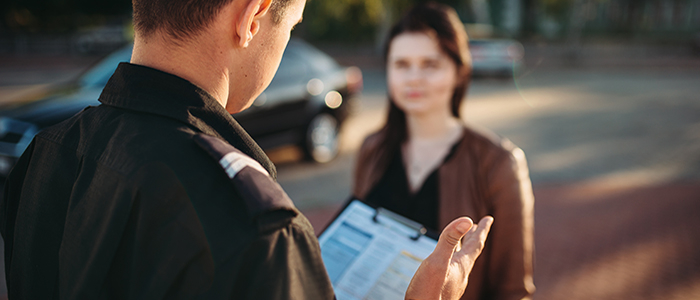If you watch a lot of law enforcement dramas, you definitely have heard someone say that you should never speak to police without an attorney present. What these shows do not make clear is that this statement holds true whether you are guilty or innocent. No matter who you are, even if you do not think you are suspected of a crime, you should not speak to the police without an attorney present. Below we will discuss some reasons why.
The Fifth Amendment to the Constitution protects you from being compelled in any criminal case to provide evidence against yourself. You have the right to remain silent. Once you have provided your name, you are no longer required to answer any questions. This includes questions of where you live, where you are going, what you are doing, where you hold citizenship, etc. You should remain calm. Do not run, do not fight, and do not lie. But make it very clear that you are exercising your right to silence and will not answer any questions without an attorney present on your behalf.
There is a misconception that refusing to speak with police or requesting an attorney makes you appear guilty. In many movies and tv shows someone will announce that they have nothing to hide, they did not commit the crime, and therefore they willingly speak with police without any representation. Police can be quite intimidating by virtue of their position of authority; so refusing to speak with them can give people a good amount of anxiety. However, in order to protect yourself, here are some reasons to consult an attorney before speaking with police.
You Might Make A Mistake
Speaking with police under any circumstances is a stressful situation. Stress affects everyone differently, and it can cause you to stumble over your words or misspeak at times. These little mistakes can be twisted and misinterpreted by police as lying or covering something up. You may quickly find that you are on the defensive, even if you have done nothing wrong.
The Officer Misremembers Your Statement
As stated above, mistakes happen. How can you be assured that the police officer you speak with is faithfully recording every word you say? If they are conducting multiple investigations simultaneously, how can you be certain that they will not confuse your testimony with someone from another case? It is best to wait for your attorney before speaking with police, so you have a witness on your side as to what was said.
You Might Be Coerced Into A False Statement
Police officers are looking for one thing above all else, a confession. They are not obligated to tell you the truth, and they will say whatever they think they have to say to get you to confess. Even if you did not commit the crime, false confessions happen a lot more often than you might think. People confess to crimes they did not commit due to immense pressure from police officers in interrogations. They may feel coerced or under duress. In order to alleviate their stress, they will say what they think the officer wants to hear. This is why having your attorney present is absolutely critical. They are an advocate for you and can stop the interrogation if they feel you are being coerced.


